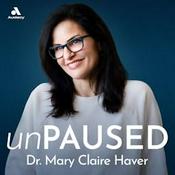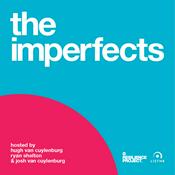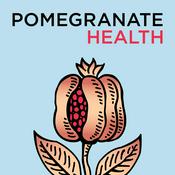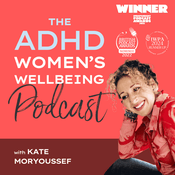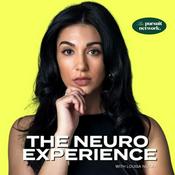The Itch: Allergies, Asthma, Eczema & Immunology
The Itch: Allergies, Asthma & Immunology
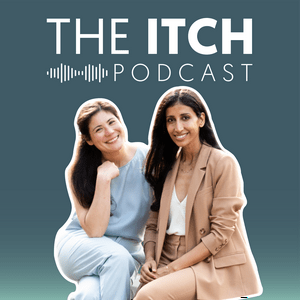
Latest episode
146 episodes
- We spend about 90% of our time indoors. But what's actually in that air we breathe, and why does it matter so much for people with asthma, allergies, and eczema?
This is a two-part series about indoor air quality.
In the first part, we break down the three main categories of indoor air pollutants: particulate matter (PM2.5 and PM10), volatile organic compounds (VOCs), and biological allergens like dust mites and mold. Dr. G explains how each one affects the body differently and why people with allergic disease are especially vulnerable.
In part two, we discuss how you can improve your indoor air quality.
What we cover in part one about indoor air quality
What's actually in your indoor air: The three main categories are particulate matter (PM), VOCs, and biological allergens.
Why PM2.5 is more dangerous than PM10: PM2.5 is small enough to enter your lungs and bloodstream, while PM10 mostly irritates your nose and throat.
How we create particulate matter: PM2.5 comes from burning things like cooking, candles, and gas stoves. PM10 comes from dust, construction, and dirt tracked in on shoes.
The difference between particles and gases: PM2.5 is like tiny specks of dust or smoke. VOCs are invisible gases that cause smells, like that "new car" scent.
Indoor allergens: Dust mites, mold, pet dander, and cockroach allergens are biological triggers that can cause allergic reactions and worsen asthma.
More resources
Allergy & Asthma Network: Healthy at Home
Allergy & Asthma Network: Healthy at Work
EPA Indoor Air Quality Tools for Schools
EPA Safer Choice Cleaning Products
EXHALE Resources
This series is part of the EXHALE project, a set of six evidence-based strategies designed to help people with asthma achieve better health and improved quality of life. This series supports the last "E" in EXHALE by reducing asthma triggers in indoor environments.
This podcast is made in partnership with Allergy & Asthma Network - We continue our tradition of interviewing the incoming president of the American College of Allergy, Asthma & Immunology to learn what is top of mind for the field and what it means for patients and families.
Dr. Cherie Zachary joins us to share her personal journey into allergy and immunology as both a lifelong patient and clinician. She explains what the ACAAI does and why increasing representation in medicine is critical for improving allergy outcomes. The conversation also tackles the allergist shortage, how physicians are trained, and what is being done to expand fellowship opportunities and improve access to care.
What we cover in our episode about Dr. Zachary & ACAAI
What the ACAAI actually does for allergy care: How the College supports clinicians and provides patients with trusted, evidence-based education.
How lived experience shapes leadership: How Dr. Zachary’s own allergic diseases influenced her path into allergy and immunology.
Why representation matters for allergy outcomes: How culturally responsive care and physician diversity improve trust and health outcomes.
Why there are not enough allergists: How training bottlenecks contribute to long wait times and limited access to care.
Historically Black Colleges and Universities (HBCUs): Her focus on expanding exposure to allergy through HBCUs and the ACAAI SPARK program.
More resources about what we discussed
American College of Allergy, Asthma, and Immunology
Listen: Ep. 77: Food Allergy and Its Impact on the Black Community
Listen: Ep. 108: Interview with Dr. James Tracy
Listen: Ep. 66: Interview with Dr. Gailen D. Marshall, Jr.
--
Made in partnership with The Allergy & Asthma Network.
We thank the American College of Allergy, Asthma, and Immunology for their support of Allergy & Asthma Network and this podcast. - Allergy & Asthma Network has spent more than four decades helping people living with asthma, allergies, and related immune conditions navigate care, access trustworthy education, and make their voices heard.
In this episode, we talk with Lynda Mitchell, CEO of Allergy & Asthma Network. Lynda shares how becoming a food allergy and asthma mom in the early 1990s shaped her career and led her into patient advocacy work. We get into how Allergy & Asthma Network supports patients and families through four mission pillars: education, outreach, advocacy, and research.
What we cover in our episode about Allergy & Asthma Network
Trusted Messengers and culturally responsive education, and why information is more effective when it comes from people who reflect and understand the community
Free virtual asthma coaching, and how one-on-one self-management education helps people improve daily asthma control and reduce emergency care
Patient voice research, what it is, how it differs from clinical trials, and why diversity in clinical trial participation matters
Advocacy efforts like Capitol Hill Day and PALI, and how patient stories influence laws and policies that affect asthma and allergy care
Ways to get involved, including resources for patients, caregivers, and healthcare providers who want to support or participate in Allergy & Asthma Network’s work
More resources about Allergy & Asthma Network
Allergy & Asthma Network
Sign-up for the Allergy & Asthma Network’s Newsletter
Get involved with clinical trials and research
More about the PALI information session (February 18, 2026)
Advocacy information
Virtual asthma coaching program (free asthma self-management education)
***********
Made in partnership with The Allergy & Asthma Network. - Asthma is one of the most common long-term conditions in children. It is a leading cause of missed school and emergency room visits. Doctors use tools (validated questionnaires) to assess how well a child’s asthma is controlled and whether their medicine is helping. Some tools only ask about symptoms, which can miss children who are still at risk for asthma attacks.
The lead author, Dr. Kevin Murphy, joins us to talk about “Pediatric Asthma Impairment and Risk Questionnaire: A Control Assessment for Children Aged 5 to 11 Years,” published July 2025 in Journal of Allergy and Clinical Immunology: In Practice.
The Peds-AIRQ was designed to improve how doctors identify uncontrolled asthma in children by asking about both current symptoms and past asthma attacks. This approach helps avoid missing children who may seem okay day to day but are at higher risk for future flare-ups.
What we cover in this episode
Why asthma control in children can be hard to measure
What “controlled asthma” really means
Why past asthma attacks matter, even when symptoms seem mild
What the Peds-AIRQ is and how it works
How this tool may support better conversations between families and doctors
DOWNLOAD THE INFOGRAPHIC
More asthma in kids resources
Take the Peds-AIRQ questionnaire
What is asthma?
Asthma in Babies and Children
Childhood Asthma: A Complex Condition That Doesn’t Have to Be So Complicated - video
***********
The Itch Review, hosted by Dr. Gupta, Kortney, and Dr. Blaiss, explores allergy and immunology studies, breaking down complex research in conversations accessible to clinicians, patients, and caregivers. Each episode provides key insights from journal articles and includes a one-page infographic in the show notes for easy reference.
***********
Made in partnership with The Allergy & Asthma Network.
Thanks to AstraZeneca for sponsoring today’s episode.
This podcast is for informational purposes only and does not substitute professional medical advice. Always consult with your healthcare provider for any medical concerns. - Sleep plays a critical role in managing allergies, asthma, and eczema, yet it is often overlooked in conversations about allergic disease.
Sleep affects mood, focus, immune function, and inflammation, all of which influence how allergic conditions show up day to day. Poor sleep can worsen asthma symptoms, increase allergy flares, and make eczema harder to control. At the same time, allergies and asthma can disrupt sleep, creating a cycle that is difficult to break.
Dr. Carol Yuan-Duclair, a sleep specialist, joins us to explore how sleep impacts allergic conditions and overall health. She breaks down what good sleep actually looks like, how to know if you are getting enough rest, and how sleep quality can directly affect allergies, asthma, and eczema.
This conversation focuses on practical guidance for patients and families, including environmental changes, medication considerations, and when it may be time to seek help from a sleep specialist.
What we cover in this episode about sleep and allergic disease
Why sleep is essential for health and immune function: How sleep affects inflammation, mood, and overall health, and why poor sleep can worsen allergic disease.
What good quality sleep actually looks like: The difference between sleep quality and sleep quantity, and how to tell if your sleep is truly restorative.
The two-way relationship between sleep and allergies: How allergies can disrupt sleep, and how poor sleep can worsen allergy symptoms, creating a difficult cycle.
Practical ways to improve sleep when you have allergies: Sleep hygiene basics, exercise timing, and creating a healthier bedroom environment.
When medications or symptoms mean it is time to see a specialist: How allergy medications can affect sleep, how eczema fits into the picture, and when ongoing sleep issues may signal the need for a sleep specialist.
More Health & Wellness podcasts
Trending Health & Wellness podcasts
About The Itch: Allergies, Asthma, Eczema & Immunology
A podcast bringing you easily digestible information on all things allergies, asthma eczema, and immunology
Podcast websiteListen to The Itch: Allergies, Asthma, Eczema & Immunology, Nothing much happens: bedtime stories to help you sleep and many other podcasts from around the world with the radio.net app

Get the free radio.net app
- Stations and podcasts to bookmark
- Stream via Wi-Fi or Bluetooth
- Supports Carplay & Android Auto
- Many other app features
Get the free radio.net app
- Stations and podcasts to bookmark
- Stream via Wi-Fi or Bluetooth
- Supports Carplay & Android Auto
- Many other app features


The Itch: Allergies, Asthma, Eczema & Immunology
Scan code,
download the app,
start listening.
download the app,
start listening.





